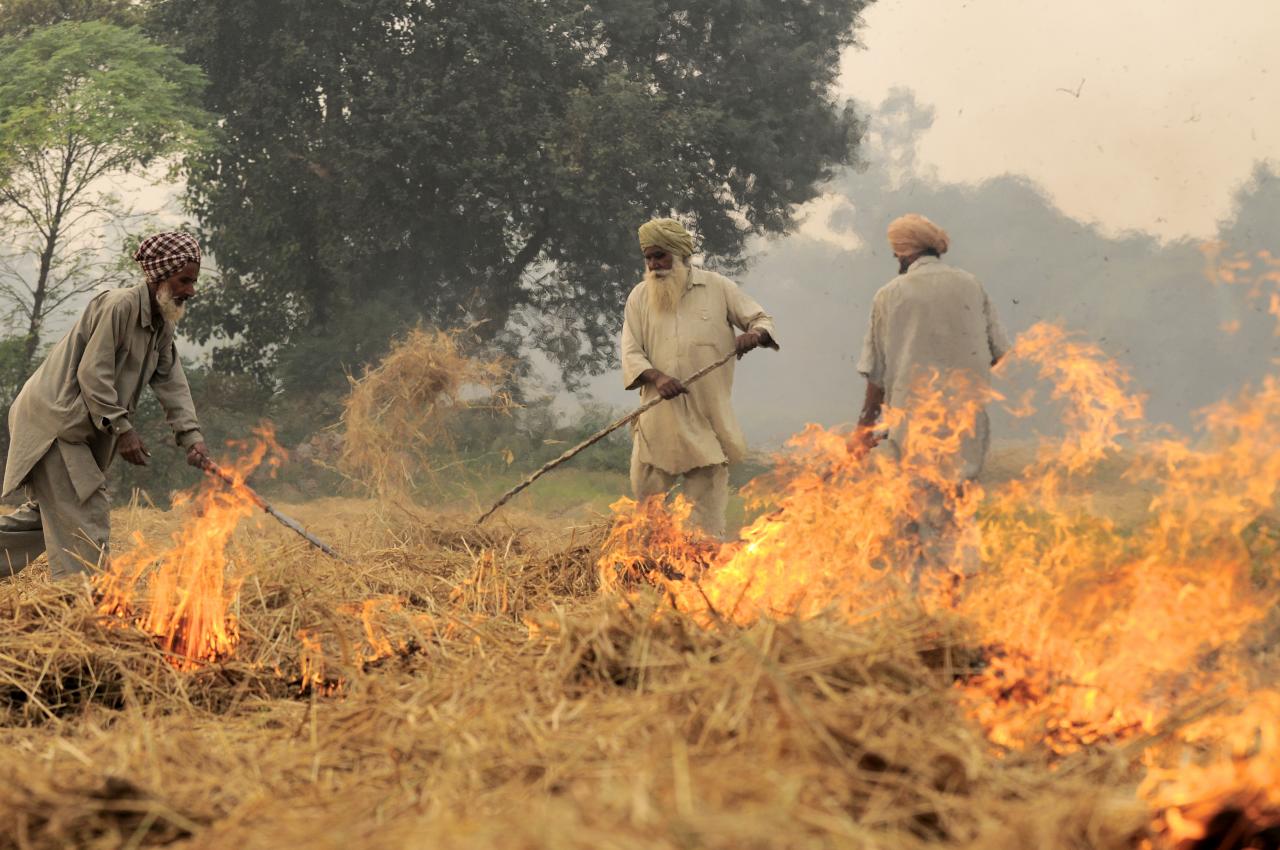
Delhi air quality 'very poor' as stubble burning increases five times
The annual practice of burning stubble in the northern states of Punjab, Haryana, and Uttar Pradesh has taken a serious proportion this year with official data showing there has been a five-fold increase in the first six days in October from last year, causing a surge in pollution in the states and in neighbouring regions, including Delhi, where the air quality has turned very poo

The annual practice of burning stubble in the northern states of Punjab, Haryana, and Uttar Pradesh has taken a serious proportion this year with official data showing there has been a five-fold increase in the first six days in October from last year, causing a surge in pollution in the states and even in neighbouring regions, including Delhi, where the air quality was categorised as very poor on Tuesday.
Delhi air quality index (AQI) touched 304 at 9:30 am on Tuesday, indicating the quality is “very poor”. The 24-hour AQI average on Monday was 261, the worst reading since February.
Related News: Stubble burning: Bio-decomposer spraying from Oct 11 in Delhi, says Kejriwal
AQI reading of 0-50 is ‘good’, 51-100 is categorised as ‘satisfactory’, 101-200 is said to be ‘moderate’, 201-300 is ‘poor’, 301-400 ‘is very poor’, while 401-500 is ‘severe/hazardous’.
Health experts are worried as air pollution could worsen the condition of COVID patients who experience difficulty in breathing.
Farmers in Punjab and Haryana say they are forced to burn the stubble as they don’t get any help from the government to clear their field for the next crop after the paddy harvest in the kharif season that ends in October. It is estimated that farmers in the two states burn about 35 million tonnes of crop waste after the kharif harvest.
“Be it the Congress government or those of the Badals (SAD), we don’t get any help,” said Happy Singh, a farmer in Amritsar. “The main reason farmers resort to crop burning is because help doesn’t reach them,” he said, reported India Today.
Another farmer Harpreet Singh Sidwa said stubble burning will stop the moment government gives support. “Who wants black fields and depleted nutrients? Blaming farmers for pollution is not the solution. There are many industries that contribute majorly to the pollution in Delhi, but, unfortunately, farmers ae blamed because they are easy target,” he told India Today.
Related News: Researchers come up with new method to avoid stubble burning
The governments, however, say they are making all facilities available for farmers.
According to the Punjab government, many biomass-based power plants have be set up that use crop waste procured from farmers as inputs.
Besides, to clear fields, farmers can hire equipment and machinery from the 7,378 custom hiring centres (CHCs) already set up in the state, the government said. It said another 5,200 centres will be set up soon.
In Haryana, the government said there are 2,879 CHCs and 2,000 more will be opened by the end of October.

